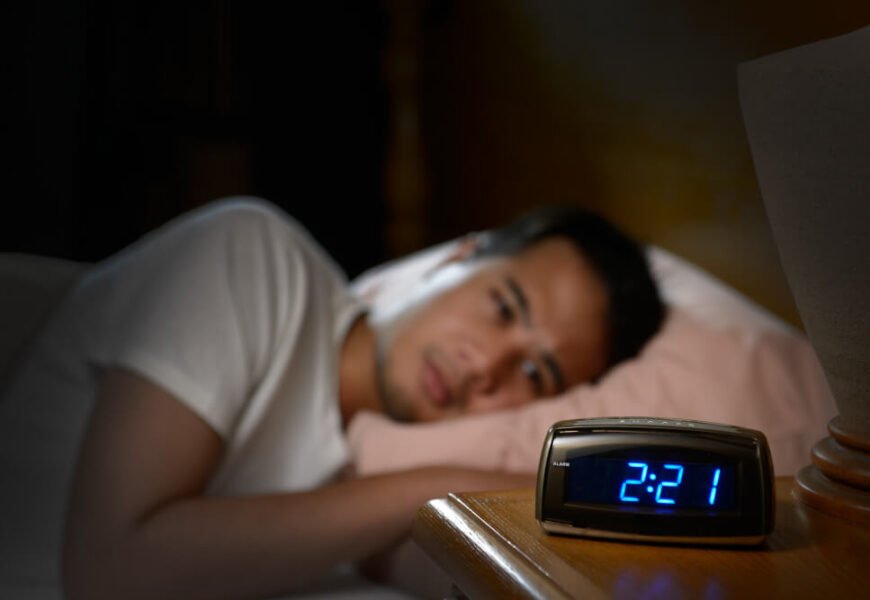Do you find yourself lying awake at night, unable to switch off your racing thoughts and drift into a peaceful slumber? If so, you’re not alone. Millions of people worldwide struggle with the debilitating effects of insomnia, a condition that robs them of precious rest and leaves them feeling drained and exhausted day after day.
The impact of insomnia extends far beyond mere sleep deprivation. It infiltrates every aspect of your life, leaving you irritable, unfocused, and unable to perform at your best. It affects your relationships, your work, and your overall quality of life, creating a vicious cycle of stress and exhaustion that feels impossible to escape.
But there’s hope. By understanding the symptoms and causes of insomnia, you can take proactive steps to regain control of your sleep health and reclaim your nights. In this comprehensive guide, we’ll delve into the signs of insomnia, explore the underlying factors contributing to your sleep disturbances, and provide actionable solutions to help you achieve restful, rejuvenating sleep once again.
What is Insomnia, its Symptoms & Causes
Understanding Insomnia & its types
Insomnia is more than just a night or two of tossing and turning. It’s a persistent pattern of sleep disruption that affects your ability to function during the day. Whether you struggle to fall asleep, stay asleep, or wake up feeling refreshed, insomnia can take a toll on every aspect of your life.
1. Transient Insomnia:
This type of insomnia is short-term and typically occurs in response to temporary factors such as stress, jet lag, or a sudden change in environment. Transient insomnia often resolves on its own once the underlying trigger is addressed and may last for a few nights to a few weeks.
2. Acute Insomnia:
Acute insomnia is more persistent than transient insomnia but still short-term in nature, lasting for several weeks. It may develop in response to significant life events such as a traumatic experience, medical illness, or emotional upheaval. While acute insomnia can disrupt sleep patterns and cause distress, it often resolves once the triggering event passes or is effectively managed.
3. Chronic Insomnia:
Chronic insomnia is the most severe and persistent form of the disorder, lasting for at least three nights a week for three months or longer. Unlike transient and acute insomnia, chronic insomnia is not typically triggered by external factors but instead becomes a recurring pattern that significantly impacts daily functioning and quality of life. Chronic insomnia may stem from a combination of factors, including underlying health conditions, psychological disorders, and lifestyle habits.
Each type of insomnia presents its own set of challenges and may require different approaches to diagnosis and treatment.
What are the symptoms of Insomnia:
Difficulty Falling Asleep:
Have you ever found yourself lying in bed for hours, unable to quiet your mind and drift off to sleep?
Frequent Nighttime Awakenings:
Do you often wake up throughout the night, feeling frustrated and unable to return to sleep?
Waking Up Too Early:
Are you consistently waking up before your alarm, feeling exhausted and dreading the day ahead?
Daytime Fatigue and Irritability:
Do you find yourself struggling to stay awake and alert during the day, relying on caffeine and naps to get by?
Anxiety About Sleep:
Does the thought of another sleepless night fill you with dread and anxiety, creating a vicious cycle of stress and insomnia?
If any of these symptoms resonate with you, it’s essential to acknowledge them and take steps to address the underlying issues.
What are the causes of Insomnia:
Insomnia can have a multitude of causes, ranging from lifestyle factors to underlying health conditions. Here are some common contributors to insomnia:
Stress and Anxiety:
The demands of modern life can leave us feeling overwhelmed and anxious, making it difficult to relax and unwind at bedtime.
Poor Sleep Hygiene:
Irregular sleep schedules, exposure to screens before bed, and a sleep environment that’s too noisy or bright can all disrupt your sleep patterns.
Underlying Health Conditions:
Chronic pain, respiratory disorders, gastrointestinal issues, and hormonal imbalances can all interfere with your ability to sleep soundly through the night.
Medications and Substances:
Certain medications, such as antidepressants and stimulants, can interfere with sleep, as can caffeine, nicotine, and alcohol.
Mental Health Disorders:
Depression, anxiety, and other mental health conditions are closely linked to insomnia, with sleep disturbances often exacerbating these underlying issues.
Understanding the root causes of your insomnia is crucial to finding effective solutions and improving your sleep quality.
How To Treat Insomnia ?
If you suspect you have insomnia, don’t hesitate to seek help from a healthcare professional. Your doctor can conduct a thorough evaluation to diagnose your condition and recommend appropriate treatment options. These may include:
Lifestyle Modifications:
Establishing a regular sleep schedule, creating a relaxing bedtime routine, and practicing stress-reduction techniques can all help improve your sleep hygiene.
Cognitive-Behavioral Therapy for Insomnia (CBT-I):
This evidence-based therapy aims to address the thoughts and behaviors that contribute to insomnia, helping you develop healthier sleep habits.
Medications:
In some cases, your doctor may prescribe sleep medications to help you get the rest you need. However, these should be used cautiously and under medical supervision.
Complementary Therapies:
Techniques such as acupuncture, meditation & yoga may offer additional support in managing insomnia symptoms.
Takeaway:
Recognizing the symptoms and causes of insomnia is the first step toward reclaiming your sleep and improving your quality of life. Whether you’ve been struggling with sleep issues for days, weeks, or even years, know that you’re not alone. By seeking help from a healthcare professional and exploring effective treatment options, you can overcome insomnia and enjoy restful nights once again. Remember, SleepHealthGuide is here to support you on your journey to better sleep.









